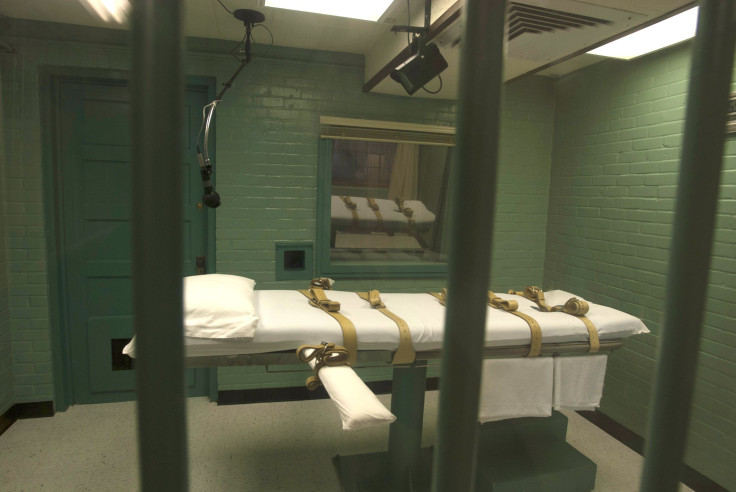Oklahoma Approves Nitrogen Gas As Backup Execution Method

Oklahoma can now use nitrogen gas to execute condemned prisoners if lethal injection drugs are unavailable. The move came a year after the high-profile botched execution of Clayton Lockett, an incident that highlighted the dwindling availability of lethal injection drugs for U.S. states that carry out the death penalty.
The bill, signed by Gov. Mary Fallin Friday, provides authorities may use nitrogen hypoxia for executions if lethal injection is not an option. If lethal injections and nitrogen gas are unavailable or declared unconstitutional, the state also has the authority to use more old-fashioned methods already approved under state law, including electrocution or firing squads.
The bill itself doesn’t specify how the gas would be administered. The Washington Post reported, however, a financial analysis of the bill suggests it would involve only a gas mask and a canister of nitrogen.
“Oklahoma executes murderers whose crimes are especially heinous,” Fallin said in a statement. “I support that policy, and I believe capital punishment must be performed effectively and without cruelty. The bill I signed today gives the state of Oklahoma another death penalty option that meets that standard.”
Last month, Utah enacted a law approving the use of firing squads for executions as an alternative if the state is unable to acquire appropriate lethal injection drugs.
Lockett's execution last April propelled Oklahoma’s execution methods into the national spotlight. Lockett, a convicted murderer, regained consciousness during the procedure, prompting authorities to stop it. He later died of a heart attack. The episode stretched over 43 minutes, and the White House said it was clear the execution was not humane.
Lockett had been given a mix of lethal drugs that was untested for use in the U.S., given its inability to procure the usual drugs used in lethal injections. The supply of lethal injection drugs has become harder for states to get as suppliers began objecting to their use in executions. State secrecy laws prevent Oklahoma authorities from having to disclose where they obtain the drugs for lethal injections.
Earlier this year the Supreme Court said it would review lethal injection procedures, including the use the drug midazolam, which was used in Lockett’s execution and 10 other lethal injections in 2014.
© Copyright IBTimes 2024. All rights reserved.












